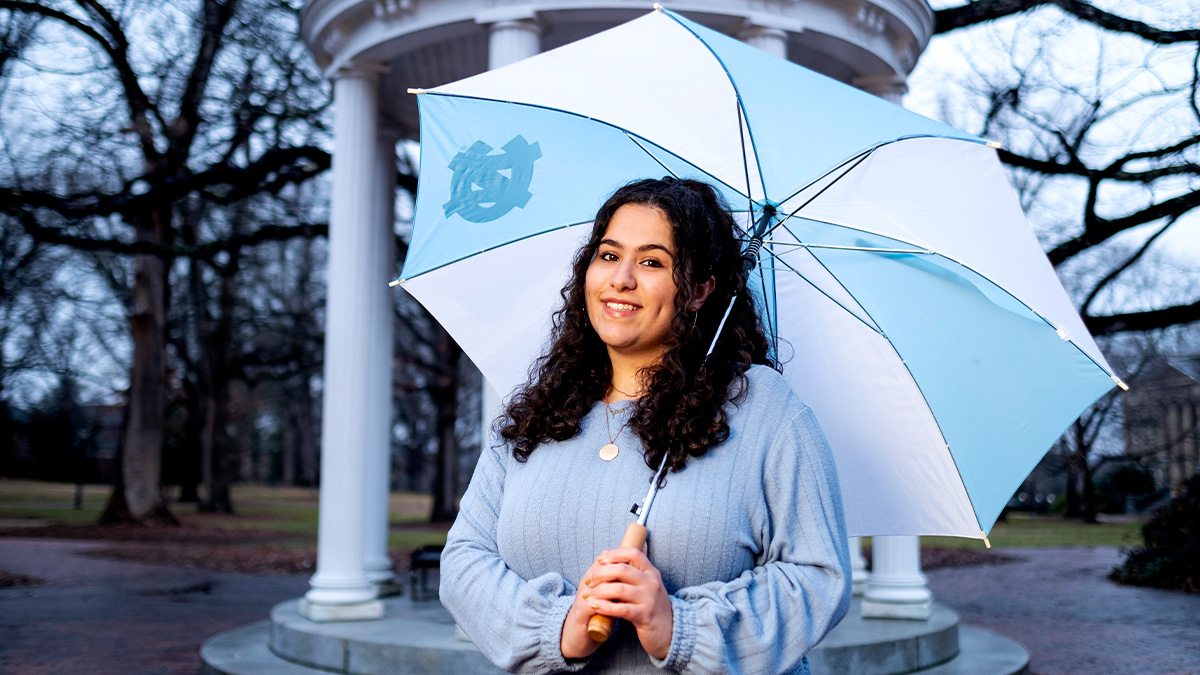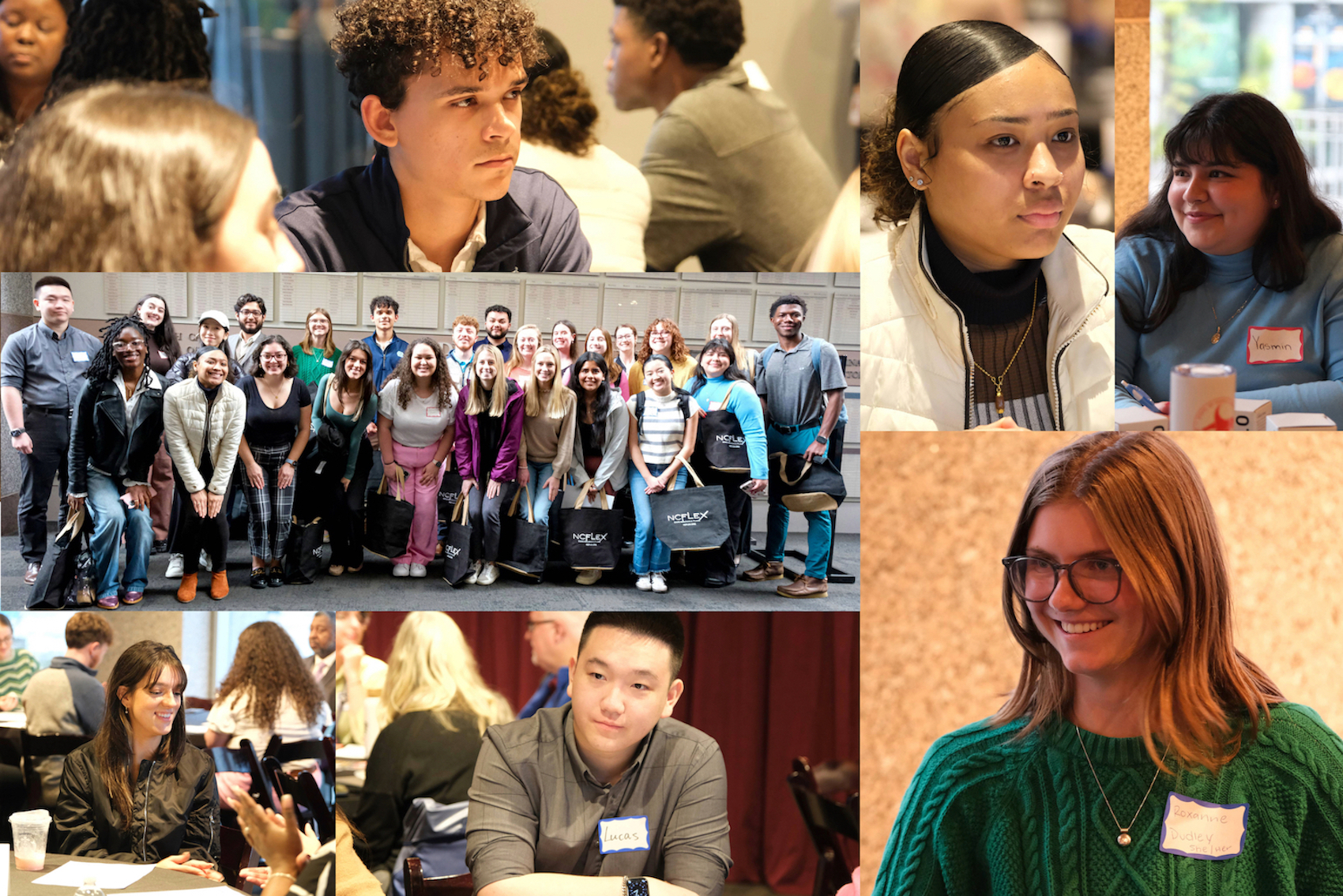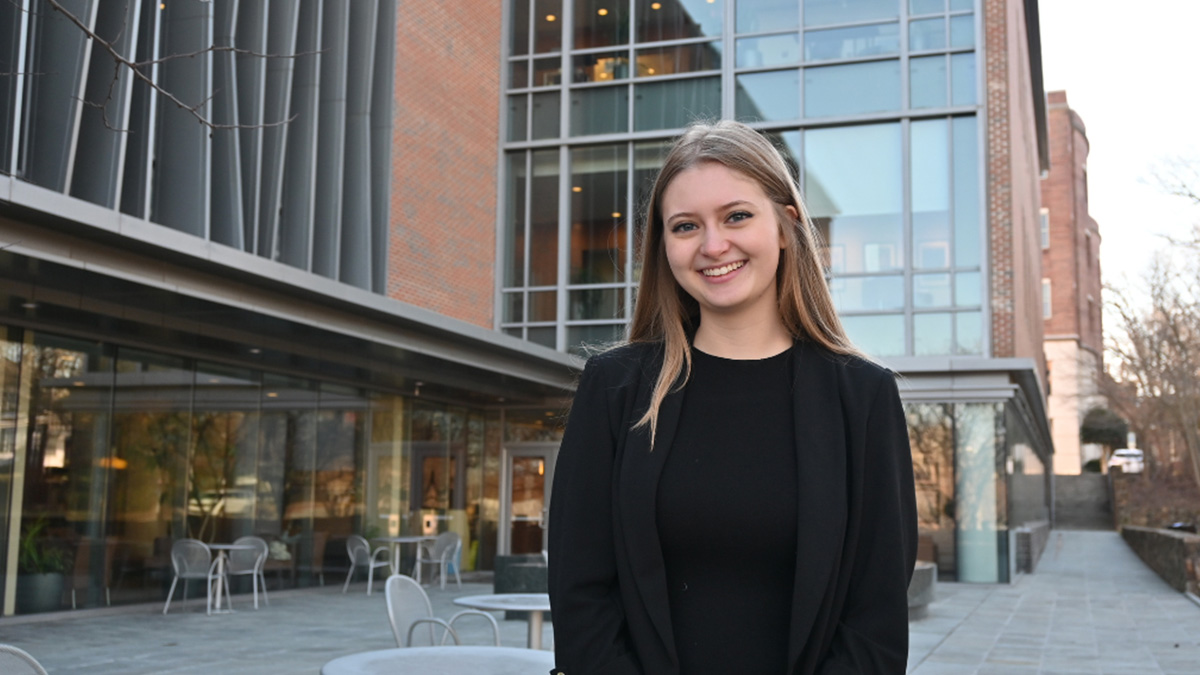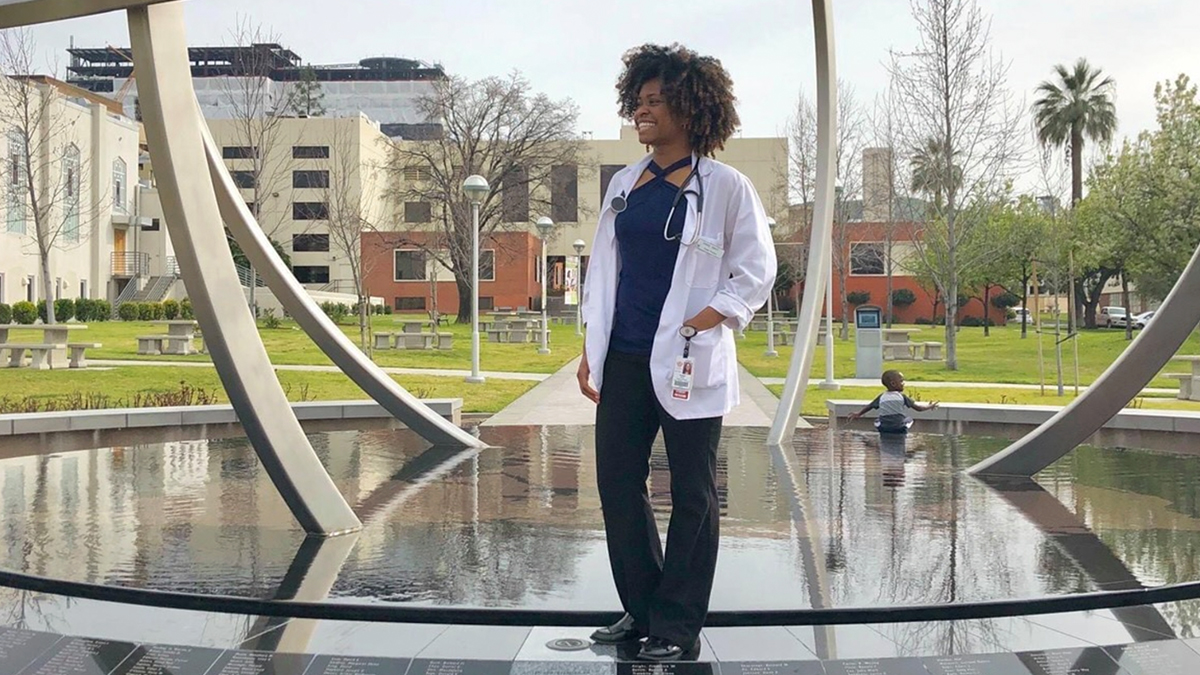A mentor for future scientists
As a Chancellor's Science Scholar, Carolina senior Dalal Azzam found the opportunities and support to thrive in the research lab and in her studies. Now, the Tar Heel is paying that support forward by serving as a mentor for more young scientists.

Dalal Azzam was determined that her first day of classes at Carolina would also be her first day in an undergraduate research lab.
She had been waiting for the opportunity for a long time, ever since she had become fascinated with research and biomedical discovery as a child in Egypt.
A childhood friend’s diabetes diagnosis had piqued Azzam’s curiosity. Azzam asked her science teacher about her friend’s daily finger pricks and pump. The idea of synthetic insulin captivated her. She wanted to be a part of making something just as life-changing.
That sense of inquiry and drive comes natural for the Tar Heel.
“Being a Muslim means being fully dedicated to the things you’re doing. You know, giving things your all, pursuing further knowledge,” said Azzam, who identities as Arab American and Muslim American.
Azzam made her first step toward her undergraduate research goals by attending the UNC Eshleman School of Pharmacy’s Young Innovators Program before her senior year in high school. The summer program helped her redefine her perception of pharmacy and research. The field, she saw, is collaborative and imaginative.
The summer experience also led her to the next big step to achieving her goals in science: the Chancellor’s Science Scholars, a program designed to support underrepresented Tar Heels pursuing STEM studies by providing access to research opportunities, funding, professional development, leadership training and mentorship.
As one of 37 scholars in the program’s sixth cohort, Azzam had the opportunity to work in a lab with Rob McGinty in the Eshelman School of Pharmacy. She was steadfast in her research and coursework but also found herself navigating a sometimes-discouraging STEM workload. In those moments, she grounded herself in the Chancellor’s Science Scholar’s community and mentorship.
“Research sounds great when it works,” Azzam said. “You only need it to work once for it to be successful, but you have to go through a million failures, so being in CSS has supported me in pursuing my passions by helping me redefine what success means.”
This resilience has led her to complete three successful research projects through the McGinty Lab that she has presented at numerous national conferences.
Recognizing the significance of Chancellor’s Science Scholar’s structural and emotional support, Azzam also wanted to provide similar resources to more underrepresented Carolina STEM students. As a Tar Heel, she took over as the president for Carolina’s chapter of the National Organization for the Professional Advancement of Black Chemists and Chemical Engineers, or NOBCChE.
“While minorities are not always explicitly excluded from STEM, it’s kind of this implicit type of exclusion that comes from the culture surrounding STEM,” said Azzam, who is majoring in biochemistry and neuroscience. “What NOBBChE does is foster a social community for minority students pursuing STEM at UNC so that we have each other’s back.”
The student organization is housed within the chemistry department but aims to serve Carolina’s STEM students underrepresented in their respective fields. NOBBChE’s programming mirrors resources provided by the Chancellor’s Science Scholars, such as professional development workshops and presentations given by speakers who reflect the students’ diverse identities.
This year Azzam also launched a peer mentorship program for chemistry students that she hopes to integrate to other STEM departments.
Her leadership and research at Carolina is just the beginning. Her next chapter is graduate school, where she hopes she can serve as a mentor for more students, spreading the goals of the Chancellor’s Science Scholars to more future scientists.
“CSS helps me recognize that if you don’t see it, then you can go be it,” said Azzam. “I will be the person that they can see.”
Learn more about the Chancellor’s Science Scholars and meet more scholars




